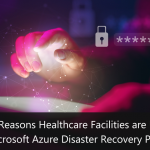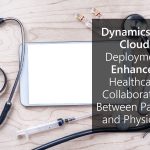Although ERP software may be more commonly associated with the manufacturing and process industries, the platform plays a critical role in many vertical sectors as well, particularly in the healthcare community.
Healthcare ERP providers, and physicians groups, are tasked with delivering effective outcomes to their clients. And, given the hurdles of government regulations, from privacy to compliance issues, tracking patient services requires more than a reliance on legacy programs like QuickBooks, or Excel.
What’s needed is the powerful business tools within Microsoft Dynamics GP’s suite of financial management modules and collaborative features; this, to take the focus of the business process for a more patient-focused mission centered on information sharing. This often results in better patient continuity when it comes to providing services and tracking follow ups.
Also, and in light of the push for Electronic Medical Records (EMR) in this sector, an equal effort is being made to patient relationship management in areas of care, claims and research; this, to meet compliance requirements as well as improve the bottom line.
With financial incentives at stake, given the switch to patient outcomes versus fee-for-services, healthcare ERP providers need to embrace a more unified approach, one that today’s ERP software can provide.
Overall, healthcare is turning it’s attention to a more customer-oriented approach through its deployment of healthcare ERP software. What’s more, both the hospital and private care providers need to be more innovative in this regard.
Contact us for more information on the use of Dynamics GP healthcare ERP software. We offer assistance throughout implementation and deployment.
{{cta(‘f8946c79-8bab-44fd-9cd0-e0100203a233’)}}





